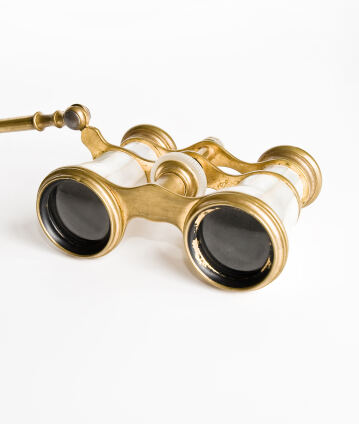Grand Opera with the Berliner Philharmoniker

Opera offers more possibilities for emotional directness and dramatic intensification than almost any other musical genre. That is why the Berliner Philharmoniker enjoy their occasional forays into opera, especially since they have the opportunity to collaborate with great singers. In this playlist you will experience some of the most beautiful and moving arias and operatic scenes – from Mozart to Verdi, Wagner and Puccini to Richard Strauss and Modernism.
Although the Berliner Philharmoniker were founded as a symphonic orchestra, their chief conductors from Hans von Bülow to Kirill Petrenko have all also been avid opera conductors. The strict distinction between symphonic and operatic music makes no sense anyway; composers such as Mozart, Strauss, Janáček, Berg and Ligeti were equally inspired as instrumental composers and musical dramatists. Wagner, Verdi and Puccini, who in fact worked almost exclusively in the operatic sphere, had such a superb command of the art of orchestration that a virtuosic ensemble like the Berliner Philharmoniker has no need to forgo performances of their works.
Overtures, arias and scenes from operatic works have always been part of the orchestra’s repertoire. Apart from a few special occasions, the Philharmoniker did not become a true operatic ensemble until Herbert von Karajan began his tenure as chief conductor. From 1967 onwards, the conductor and his orchestra presented staged performances at the Salzburg Easter Festival every year – a tradition that was continued by Claudio Abbado and Sir Simon Rattle, under whom the festival moved to Baden-Baden in 2013. But audiences can also hear operatic works on various occasions in Berlin. Productions presented elsewhere are regularly repeated in concert performances at the Philharmonie, and the more eclectic programmes of the New Year’s Eve and Waldbühne concerts frequently feature excerpts from stage works. The main auditorium of the Philharmonie also serves occasionally as an opera stage, for instance, in several productions by Peter Sellars.
Herbert von Karajan felt almost as much at home in Italian opera as in German stage works. His successors have continued to programme this repertoire, although they have also concentrated on their own areas of expertise. Abbado, who was one of the foremost Mozart and Verdi conductors of the 20th century, also presented operas by Rossini, Bizet, Mussorgsky and Berg with the Berliner Philharmoniker and devoted himself intensively to Richard Wagner towards the end of his tenure. Wagner also continued to be a constant in the operatic repertoire that Sir Simon Rattle presented with the Berliner Philharmoniker. After Karajan, he conducted the orchestra’s second complete Ring cycle and complete performances of other Wagner music dramas. In addition, Sir Simon made his debut as a Puccini conductor and brought his extensive specialist knowledge to works by Janáček, Gershwin and Bernstein. The successor to Sir Simon, Kirill Petrenko, who was elected in 2015, was previously musical director in opera houses: in Meiningen, at the Komische Oper in Berlin and at the Bayerische Staatsoper in Munich. He presented a preview of his operatic ambitions with the Berliner Philharmoniker in his inaugural concert as chief conductor at the beginning of the 2019/20 season, where he performed Alban Berg’s Lulu Suite with the soprano Marlis Petersen.
This selection also includes opera overtures and scenes under the direction of guest conductors such as Mariss Jansons, Riccardo Muti and Christian Thielemann, who presented excerpts from Richard Strauss’s Arabella in May 2011. Naturally, the Berliner Philharmoniker do not pass up the opportunity to collaborate with the greatest opera singers of our time, including Mirella Freni, one of Herbert von Karajan’s favourite singers, the stage stars Renée Fleming, Thomas Hampson and Ben Heppner, the bass-baritone Bryn Terfel, Christine Schäfer, who is matchless both in her interpretations of Mozart and Modernist repertoire, Eva-Maria Westbroek, who is acclaimed for her German and Italian roles, and the distinguished Wagner bass John Tomlinson. Also unforgettable are Anne Sofie von Otter’s appearance in excerpts from Bizet’s Carmen with Claudio Abbado. Finally, Barbara Hannigan’s performance of three coloratura arias from Ligeti’s Le Grand Macabre, which she presented with Sir Simon in the Philharmonie on several occasions, is a display of absurdist comedy and vocal virtuosity.
Our recommendations
- “La Mer”: Water music with the Berliner Philharmoniker
- Tema con variazioni: Music with alterations
- “From the New World”: A trip to America with the Berliner Philharmoniker
- English music with the Berliner Philharmoniker
- Our double bass player’s perspective: Matthew McDonald’s favourites
- Popular Classical and Romantic works